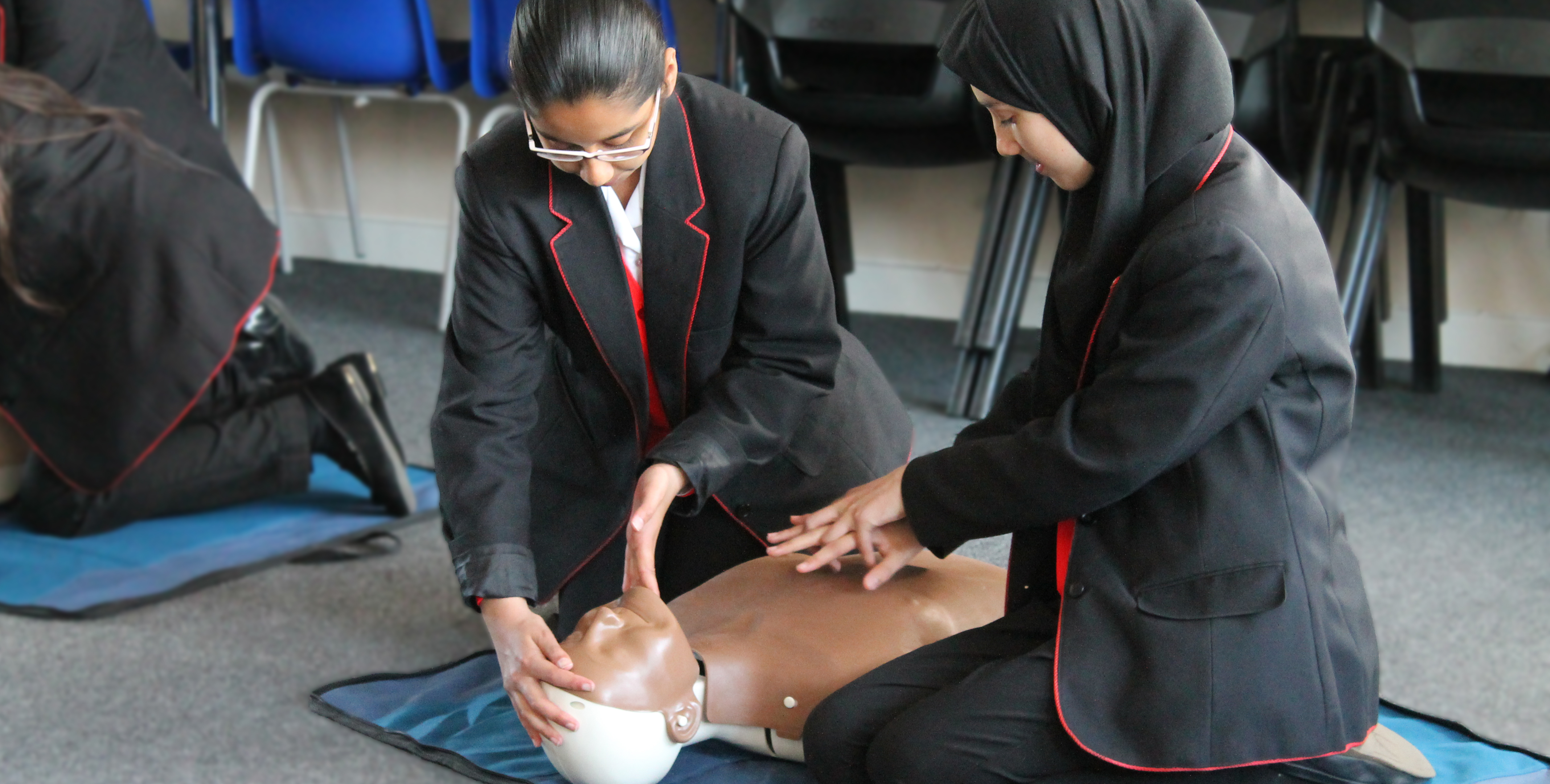New research commissioned by Resuscitation Council UK (RCUK) has uncovered worrying gaps in CPR education in UK secondary schools - highlighting that thousands of students are missing out on the opportunity to learn this vital lifesaving skill.
Although governments and local authorities across the UK introduced policies since 2019 to ensure CPR is taught in secondary schools, there is currently no structured way to track whether this training is being delivered.
Without proper monitoring and support, too many students are leaving school without learning how to save a life.
A cardiac arrest is the ultimate medical emergency: the heart stops beating, and the individual is clinically dead. Early CPR can double the chances of survival - making it essential that as many people as possible, including young people, have the confidence to act in an emergency.
New research commissioned by RCUK highlights the critical need for CPR education in schools, the findings reveal:
- 91% of parents believe the government should do more to support schools in delivering CPR training
- almost 4 in 10 students (38%) say they haven’t received CPR training at school
- over 70% of those students trained in CPR say they would feel confident to act in an emergency.
To ensure that every student leaves school with this essential skill, RCUK and partners, including Brentford FC and Heart Research UK, are calling for governments, education providers, inspectorates and local authorities to work together to embed CPR training within existing school inspection frameworks. This will enable CPR training to become a standard component of school evaluations, ensuring consistent delivery.
International evidence shows that in countries where basic life support is taught in schools, survival rates from sudden cardiac arrest are up to two to three times higher than countries that don't teach CPR in schools. This highlights the importance of building the next generation of lifesavers and underscores the need for monitoring CPR training in schools.
To improve CPR training rates in schools, RCUK and partners are asking governments, local councils and education inspectorates across the UK to work with stakeholders to:
- embed CPR training within existing school inspection and improvement frameworks to ensure consistent delivery, and help assess and encourage provision where appropriate
- facilitate collaboration across devolved nations with local authorities and education providers to sustain progress and share good practice
- promote existing guidance and accessible resources to support schools and teachers in delivering CPR training.
Resuscitation Council UK, along with its partners offer free, practical resources to help schools deliver CPR training and are encouraging all schools to take part in Restart a Heart (RSAH), an annual worldwide CPR training event that takes place in October. By linking this initiative to wider monitoring efforts, they aim to widen access to lifesaving skills and improve survival rates.
James Cant, Chief Executive at Resuscitation Council UK, said: “As a former school teacher, I know all too well the pressures that school teachers face. This isn’t about adding further work to overflowing in trays. It’s about collaborating with all agencies involved to ensure every student can learn this lifesaving skill. All of us working together to give students the confidence to step in and help save a life in an emergency. CPR saves lives and currently too many young people are leaving school without this crucial skill.”
Nity Raj, Brentford FC Director and General Counsel, said: “The latest research from Resuscitation Council UK highlights a gap in CPR training across UK schools. It’s a gap we should all be helping to narrow. Through our Heart of West London initiative, we’ve been promoting the importance of learning CPR across our fanbase and community. Our Brentford FC Community Sports Trust delivers CPR training sessions, empowering young people with the skills and confidence to act in an emergency.
“We’re proud to stand with RCUK and partners in calling for CPR education to be a consistent and essential part of every young person’s education. Together, we can equip a generation with the skills to save lives.”
Kate Bratt-Farrar, Chief Executive at Heart Research UK, said: “It is vital to teach CPR in schools across the UK, equipping young people with lifesaving skills to ensure they can act confidently in a medical emergency. Cardiac arrests can happen anywhere, and with early intervention, the survival rate significantly increases. When CPR education is a standard part of teaching, it will create a generation of lifesavers.”
Sign our petition today, so we can improve support for CPR training in secondary schools - Ensure every student leaves school with CPR training | Resuscitation Council UK
- Ends -
